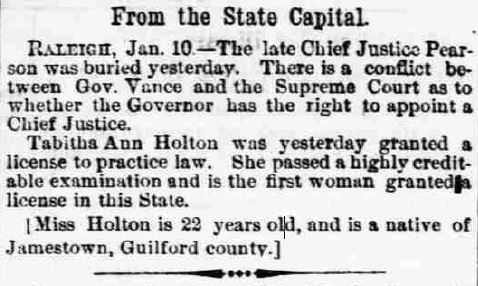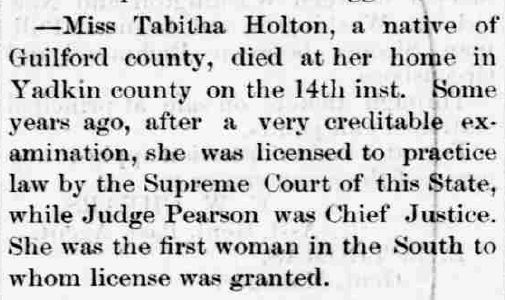Tabitha Anne Holton was a 22-year-old woman who became North Carolina’s first female attorney after successfully passing the bar examination, alongside her brother, Samuel Melanchthon Holton, in 1878. Her success was published in both Northern and Southern newspapers and drew a variety of comments, including some about her appearance. She practiced with her brother in Yadkinville and conducted research for their firm. Tabitha Holton died of tuberculosis in 1886. She is buried at the Springfield Friends Church in High Point, North Carolina.
The following images are pulled from newspapers on Chronicling America:



